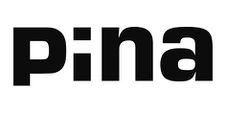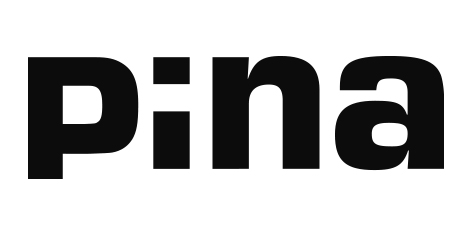Difference between revisions of "KID PiNA"
(Art kino Odeon Izola) |
|||
| Line 74: | Line 74: | ||
PINA organises the 3-P festival, called the Festival of future poetry. It takes place each year in February, and is held since 2009. Another festival, first held in 2015, is called Invisible cities and it takes place in the border cities of Nova Gorica and Gorizia (IT) and some towns around them. It is a multimedia art festival that features AV pieces, interactive installations, theatre performances, and so on. | PINA organises the 3-P festival, called the Festival of future poetry. It takes place each year in February, and is held since 2009. Another festival, first held in 2015, is called Invisible cities and it takes place in the border cities of Nova Gorica and Gorizia (IT) and some towns around them. It is a multimedia art festival that features AV pieces, interactive installations, theatre performances, and so on. | ||
| − | Additionally, PINA (which runs the 'Europe Direct Koper' initiative) is a part of the European Film Week, and it organises film screenings in the [[ | + | Additionally, PINA (which runs the 'Europe Direct Koper' initiative) is a part of the European Film Week, and it organises film screenings in the [[Art kino Odeon Izola]]. PINA was also a part of some other local festivals and events, such as the Festival Izis in Izola (also dealing in multimedia art). In 2019 and 2011, PINA was a partner of [[Memefest - International Festival of Radical Communication]]. |
===Videos and booklets=== | ===Videos and booklets=== | ||
Revision as of 17:06, 24 August 2016
-
to
7 Mar 2024
7 Apr 2024
Intermedia artist Robertina Šebjanič will be exhibiting her project "Echinoidea future - Adriatic sensing" as part of a group exhibition "SúnPoíēsis: From Ego- to Eco-Centrism through Art". Curated by Sabina Oroshi, produced by UR Institute and STARTS4Water, production support by KID PiNA and Zavod Sektor. The event is supported by Kunsthalle Trier and Slovenian Cultural Centre in Berlin, Embassy of the Republic of Slovenia Berlin.
-
28 Mar 2012
Kolektiva Institute, PINA Primorje Information Atelier and KUD Zrakogled presentation at the Borderless project produced by Student Centre
Background
Established in 1997 by the Open Society Institute, PINA's stated objective was very broad but it fore-fronted the development of civil society and public access to modern tools of information and communication technology. In 1998, PINA opened the first cybercafe in Slovenia. It moved it to its current premises in 2004 (where it holds a number of various activities), the same year when it also joined with Ljudmila and Kibla to form the M3C Multimedia Centres Network of Slovenia, a Slovenian network of multimedia centres.
In the years that followed PiNA still maintained its multimedia and technological creed, yet it also focused more extensively into the fields of arts, cross-cultural dialogue, active participation in the community, sustainable development and the dissemination of info on the European Union and its projects, opportunities and so on. Several now successful artists started their way at KID PiNA.
Premises
PINA manages two locations. One is a multimedia centre equipped for audio and video production and post-production. Its audio part, which also enables recording, is called the Seed Sound Studio. The centre is freely available to NGOs and individuals needing its services.
The second place, called eKavarna (eCafe), is outfitted with computers, books and some other materials on topics such as the EU, sustainable development, informal education, and so on. It hosts exhibitions, literary evenings, concerts, lectures and so on – they are mostly produced by PINA, but the place is open to other producers as well.
Activities
The range of activities that PiNA engages in is hard to encompass. Culture-wise, PINA sets up exhibitions of art, comic illustration, posters, multimedia and photography; screens films and documentaries, either as a part of their regular programme or featured as a part of particular projects; runs concerts (there was, for example, a series of events produced in collaboration with the Cona Institute); and organises workshops on music production, film editing, etc.
These events are joined by more specific projects like a photography exhibitions of villages burnt during the WWII; an international conference on historical treatment of woman involved in various sorts of resistance; round tables on the issues of discrimination in the theatre; workshops on oral histories (co-produced with the Science and Research Centre of Koper; and so on.
PINA also organises training and mentoring for other NGOS, sets up conferences, cultural management workshops, webinars, employment and therapeutic consultations, all manner of civil society development projects (for example on urban gardening), and analysis (a resounding one was about the situation of youth in the coastal region, published in 2014).
Another curious project is Iskra, a networking hub and a virtual meeting point for NGOs in the Karst and Istra region of Slovenia, meant for sharing experience, information and collaborative projects. It is in a way a continuation of a now defunct multimedia web portal for the Coastal and Karst Region.
Festivals
PINA organises the 3-P festival, called the Festival of future poetry. It takes place each year in February, and is held since 2009. Another festival, first held in 2015, is called Invisible cities and it takes place in the border cities of Nova Gorica and Gorizia (IT) and some towns around them. It is a multimedia art festival that features AV pieces, interactive installations, theatre performances, and so on.
Additionally, PINA (which runs the 'Europe Direct Koper' initiative) is a part of the European Film Week, and it organises film screenings in the Art kino Odeon Izola. PINA was also a part of some other local festivals and events, such as the Festival Izis in Izola (also dealing in multimedia art). In 2019 and 2011, PINA was a partner of Memefest - International Festival of Radical Communication.
Videos and booklets
Among the many PINA's materials, one can mention educational videos for youth centres on how to run social networks and how to approach multimedia, a series of video shows on the topic of information society, a table-game on the structure of the EU, a documentary film about activism and NGOs, a documentary titled The Social impact of Art (2012), a manuals on 'Greentrepreneurship and Employability of Youths' (2016), on cultural management (2014) and urban gardening (2014).
International activities
PINA has collaborated with more than a hundred partners from abroad. It is the regional partner for a number of networks, and featured in the programmes like Erasmus+, Europe for citizens, Creative Europe, European Social Fund, the Norwegian Financial Mechanism, the Grundtvig and Leonardo da Vinci programmes, and the Anna Lindh Foundation.
Annually PINA sends more than 60 individuals on various international exchanges.
See also
- List of the Multimedia centres Network members
- Memefest - International Festival of Radical Communication
External links
- KID PINA website (in Slovenian)




